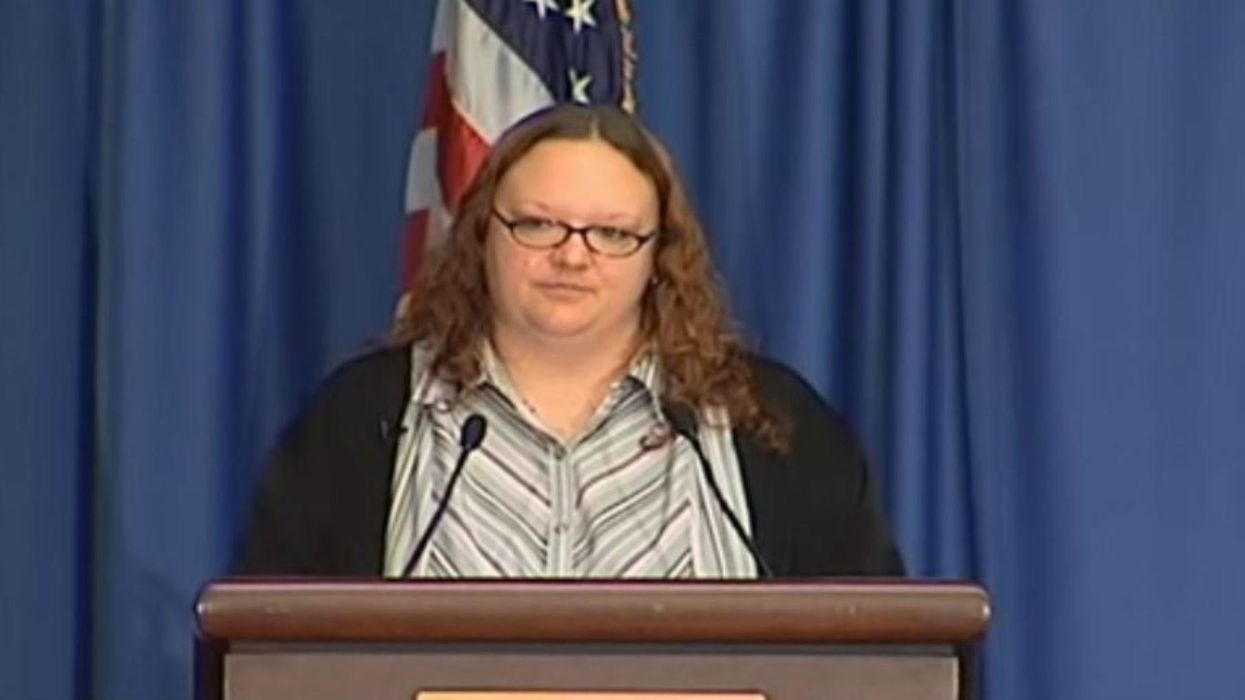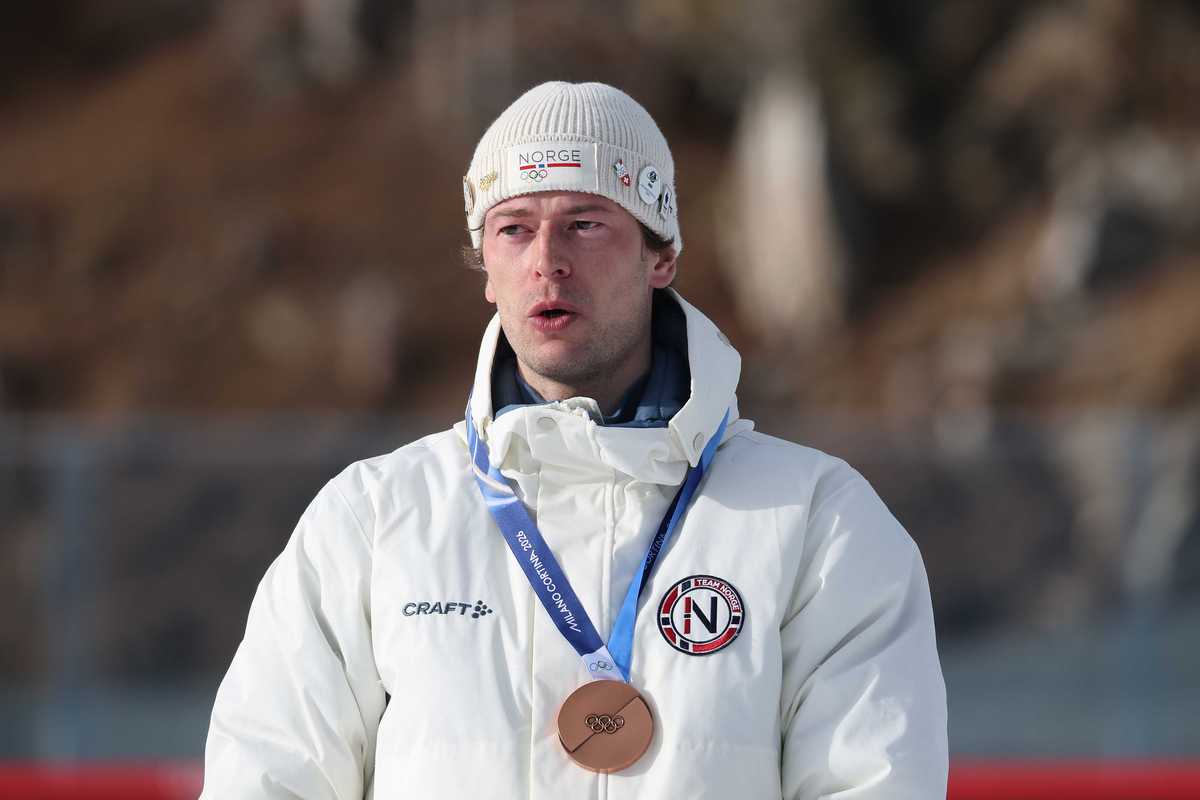News
Joe Vesey-Byrne
Aug 30, 2017

Picture:
University of Central Florida/YouTube screngrab
Angela King, a former white supremacist from Florida, is sharing the story of how she fell in love with a black woman.
In an interview with BBC Magazine and World Service, published on Tuesday, King (23) described her life as part of a skinhead gang, and how one woman changed her life.
She also described her tattoos from her time in the gang, these included Viking symbols on her chest, a swastika on her middle finger, 'Seig Heil' on the inside of her bottom lip.
The gang was violent and according to King, regularly engaged in assault.
King was dating one of the men in the gang, and kept it a secret that she was attracted to women.
Her conservative, strict Baptist upbringing was another reason she remained in the closet, she told the BBC:
I knew I had to keep it to myself. My mother used to say to me, 'I will never stop loving you... except you better never bring home a black person or a woman.
In 1998, King and her gang were involved in a bar fight. Fleeing the scene, she and another woman decided to commit robbery.
We drove around all pumped up and started talking about what a race war would be like in the US...
We talked about how it was OK to hurt people who aren’t like us and we decided to go and find a place to rob.
After arguing for so long about which of them should go into a shop that it closed, the pair then robbed a video shop.
King was sent to prison in February 2009, and it was at that point that her life changed.
According to King, one day in prison she was approached.
I was in the recreation area smoking when a Jamaican woman said to me, 'Hey, do you know how to play cribbage?
The friendship led to King spending more time as part of a wider group of Jamaican women, who had been convicted for drug smuggling.
I hadn't really known any people of colour before, but here were these women who asked me difficult questions but treated me with compassion.
One of these women even helped hide King's racist past from the other inmates, by stealing a newspaper that contained details of King's case, before any of the other inmates could read it.
Later, another Jamaican inmate confronted her about her neo-Nazi past. According to King, the two spoke and realised they came from similar backgrounds.
Their antagonism became friendship, then cell mates, then partners.
We realised we had fallen in love with each other. We were like, 'How on Earth did this happen?
We spent a lot of time together talking and shared a cell for a while. It got quite serious but we had to keep it secret.
Their relationship ended before King left prison in 2001, but the experience nonetheless changed King's life.
I was very honest about my past. I found acceptance in the gay community and realised I wasn't alone.
King went on to study sociology and psychology at community college, to better understand the roots of extremism.
She has also engaged in speaking tours since 2004 on behalf of her local Holocaust Centre.
In 2009, King appeared at University of Central Florida to speak about her transformation.
Her group for former neo-Nazis 'Life After Hate' had its funding cut by the Trump administration in June.
Recent events in Charlottesville have left the group 'running on fumes', but King says public donations have helped.
King also told the BBC that she has begun to forgive herself:
I have a lot of healthy guilt about who I was and the things I did to hurt others and myself. But I know I would not have been able to do this work had I not had those experiences
HT BBC
Top 100
The Conversation (0)













